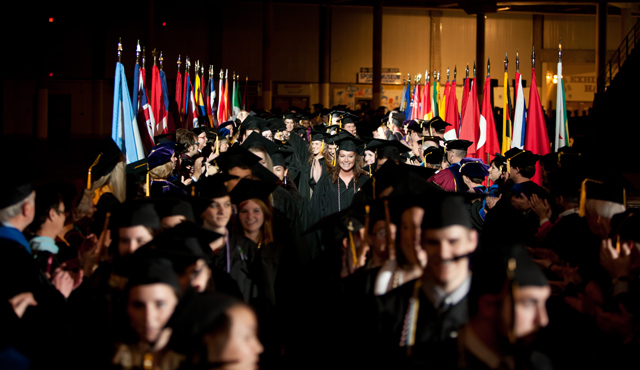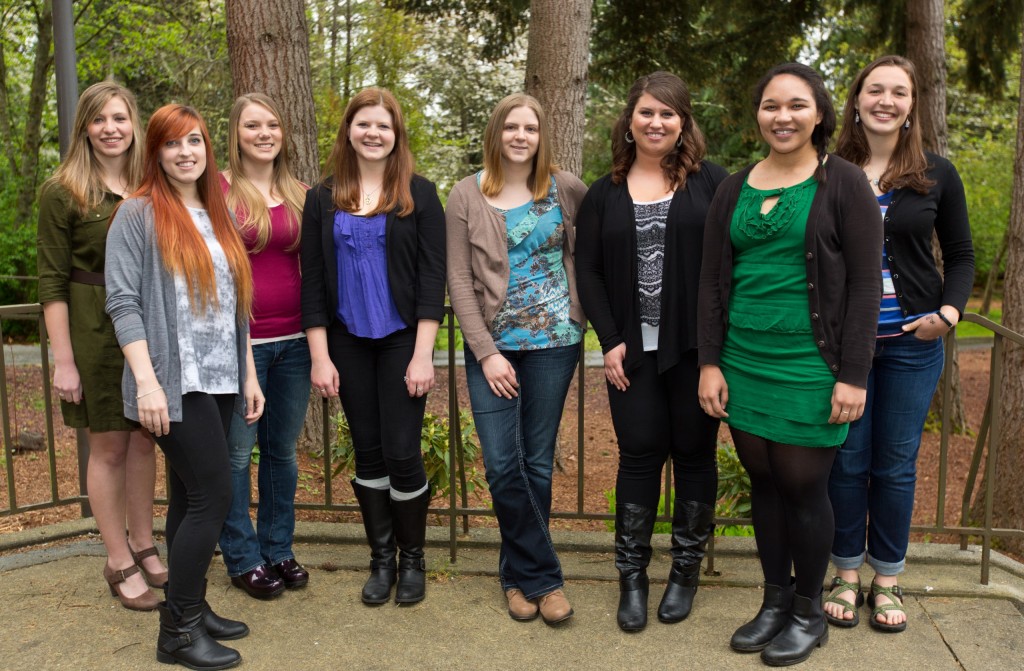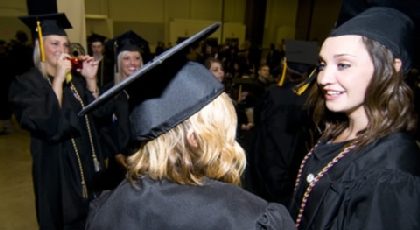Page 25 • (247 results in 0.124 seconds)
-

enjoyed my time here, I trust that I am prepared to take my next steps; steps that will reflect PLU and the life experience and knowledge that I have collected here. What’s next? After graduation I will be flying to Baden-Württemberg, Germany to assistant-teach English through the Fulbright program for a year. I am unbelievably excited to begin this adventure and I look forward to seeing where it leads. It may lead to graduate school at the University of Oregon to pursue a degree in either Linguistics
-

communities. It really is all about community.” JESSICA SADLER Hometown: Mesa, Ariz. Major: Philosophy and Environmental Studies. Graduation date: May 2014 Peace-building experience: Sadler studied away in England, Germany, Poland, the Czech Republic and Northern Ireland, where she built relationships with her fellow travelers—and cohort members. “To see common experiences and how beautiful people are—all these girls on the trip—we learned so much about the human condition and how we work with the world
-
, and the policies and practices of professional organizations, such as the Modern Language Association, reveal the ways in which the image of the profession has been manipulated to fit other ideological agendas. Such issues have also affected the relative prestige of individual languages (the popularity of Russian in the space-age “Sputnik” era, for example, or the current popularity of Spanish linked to shifts in the U.S. demographic trends) as well as the rising and falling popularity of various
-

experience. Although the majority of my classes here at PLU have been nursing-related, the interdisciplinary, global and service-related foci of the university have enriched my world view and presented me with many opportunities for service, leadership, involvement and academic exploration. I had the opportunity to study away during two of my J-terms at PLU. I spent J-Term 2009 studying philosophy in England, Germany and Greece, and J-Term 2011 in the People’s Republic of China studying Traditional
-

batteries store more energy per mass (specific energy) and per volume (energy density) than Li-ion batteries, but cannot discharge that energy as quickly as modern electronics need because metal anodes oxidize too slowly. We hypothesize that the specific power of metal-air batteries, as a class, would increase if the electrochemically accessible interfacial areas of metal anodes were greatly increased by supporting the redox-active metal component on nanostructured, porous current collectors. In such a
-
news! Fulbright Fellowships have become a PLU hallmark as between 1975 and 2009, 80 students had been named U.S. Student Fulbright Fellows. Three more students were added to that prestigious company last year. Eric Buley will be an English teaching assistant in Venezuela, Nicole Paso will continue her study of the early Reformation church and state-sponsored social welfare in Germany, and Kelly Ryan will be working with the Nansen Dialogue Network researching grassroots reconciliation in Macedonia
-

as “innocent” and “pure” icons in art but the impressionistic nature of children shows that they have been used in history as pawns and even catalyst themselves of conflicts. I have extended my research to include and compare historical altercations outside of the United States that have heavily involved civilian children such as the Holocaust in Germany and the conflict in Derry, Ireland. To be able to process and get perspective when studying such dark history, I try to never forget to escape
Do you have any feedback for us? If so, feel free to use our Feedback Form.


